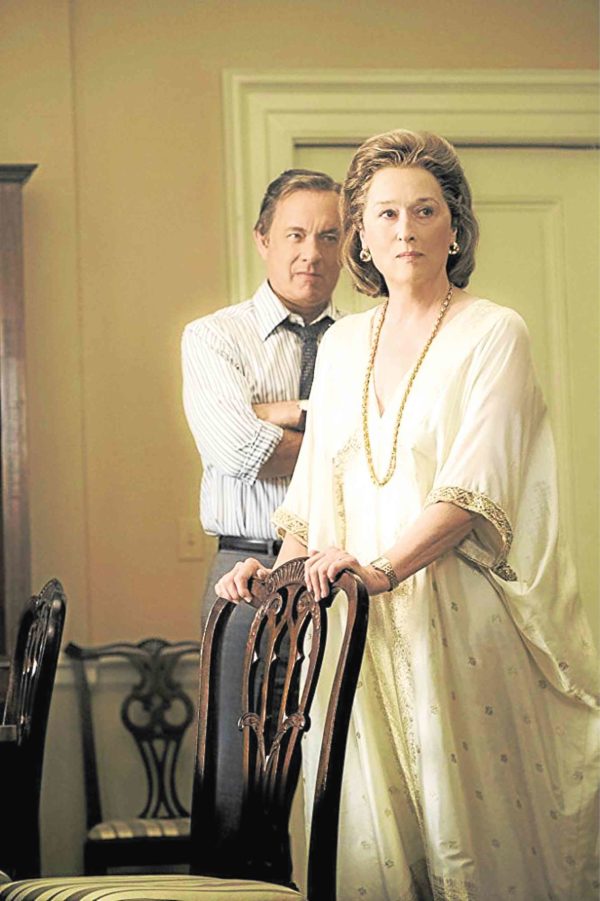The Academy Awards don’t always get it right. A classic example is “Citizen Kane,” considered by many film historians as the greatest motion picture ever made, which lost the golden statuette to “How Green was My Valley” in 1942.
The list of exceptional “losers” like “Citizen Kane” is long and instructive: “Brokeback Mountain” (lost to “Crash”), “Raging Bull” (to “Ordinary People”), “2001: A Space Odyssey” (to “Oliver!”), “Saving Private Ryan” (to “Shakespeare in Love”), “It’s a Wonderful Life” (to “The Best Years of Our Lives”)—and, shockingly, “Singin’ in the Rain” wasn’t even nominated in 1953.
And if you can’t relate to those gargantuan missteps because they involved films that were released long before you were born, you only need to revisit last year’s awards rites to be reminded of how flawed and compromised the Oscars’ vetting process has become.
The big 2017 goof-up notwithstanding, the Academy acquiesced to the #OscarsSoWhite pressure by choosing the path of least resistance and awarding the top plum to the “thematically hip” but narratively dissonant “Moonlight” over the deceptively fizzy but gloriously realized “La La Land.” The task was to choose the best film from an exceptional lineup, not pick the “best cause to rally behind.”
Another film that could end up losing to its “showier” rivals in the 90th edition of the Oscars on March 4 is Steven Spielberg’s edge-of-your-seat political drama, “The Post,” which begins its theatrical run in the Philippines on Feb. 21. Mark your calendar, guys—you don’t want to miss this.
“The Post” is going up against an excitingly diverse lineup that includes “Call Me by Your Name,” “Darkest Hour,” “Dunkirk,” “Get Out,” “Lady Bird,” “Phantom Thread,” “The Shape of Water” and “Three Billboards Outside Ebbing, Missouri”—and we’ve seen every single one of them.
But, even if the Meryl Streep-Tom Hanks starrer goes home empty-handed, it’s one of those indelible productions that will remain in film aficionados’ consciousness long after the credits roll because of the urgent themes it tackles—press freedom, the dangers of fake news and twisted propaganda, abusive government officials who think they’re beyond reproach, etc.
Another great reason to watch the film is Meryl’s carefully calibrated and finely nuanced portrayal of a woman who’s finally coming into her own. Meryl has her own share of dissers and bashers, but it’s ridiculous to blame the prodigious 68-year-old actress, who now has 21 Oscar nominations, for being mindblowingly competent and confident at everything she does. Duh.
“The Post” is as much about a woman’s political awakening as it is about the indispensability of a free press in the exercise of democracy.
It dramatizes how socialite-turned-Washington Post publisher Katharine Graham (Meryl) proves her naysayers wrong as she steps up to the challenge of fighting an unwinnable and almost indefensible war, with editor in chief Ben Bradlee (Tom) by her side.
“The Post’s” story begins in 1966, when then Secretary of Defense Robert McNamara privately expresses to President Lyndon B. Johnson and military analyst Daniel Ellsberg (Matthew Rhys) the hopelessness of America’s war efforts in Vietnam, then lies about the findings in public.
Later, the military analyst is seen making copies of the classified documents and leaks them to The New York Times, which then releases its exposé about the government’s long-running deception of the American public.
When the Times succumbs to the wrath of the Big Guy in the White House, the baton is passed on to The Washington Post, which goes through the wringer when it starts printing the documents, known as the Pentagon Papers, that divulge the United States’ 30-year failed involvement in the Vietnam War.
Steven Spielberg makes his skill and mastery of his craft work for the film in the way that he proficiently juxtaposes the events that he dramatizes to insightful perfection in “The Post” and, as shown in Alan J. Pakula’s “All the President’s Men,” those following the botched 1972 burglary of the Democratic Party headquarters at the Watergate apartment complex.
As we know by now, that political nail-biter was investigated by journalists Carl Bernstein (Dustin Hoffman) and Bob Woodward (Robert Redford), with a little help from their whistleblowing pal called Deep Throat—and the rest is (cinematic) history.
The narrative progression takes time to warm up, but the production eventually unravels a surprising payoff worthy of its cleverly staged setup—and segues to a delicately staged, rousing final act that should not be missed by film and history aficionados alike.
Many of the events depicted in the film took place in the ’70s, but its David vs Goliath tale is as relevant as it’s ever been. Moreover, Katharine’s “awakening” puts a tantalizing context to what the movie advocates with passion, and in relentless fashion—adherence to truth.
In Meryl’s able shoulders, Katharine’s transformation is gradually but clearly delineated—from the scenes where she’s rendered speechless by the mere presence of her combative, opinionated and intimidating male peers, to the moment when she finally decides to take charge, stand her ground and lead The Post to its much-deserved place in history.
When she finally breaks free from the shackles of indecisiveness, Katharine’s steely resolve and courage will shake you out of your apathy and remind you that there are some things that are still worth fighting for.
